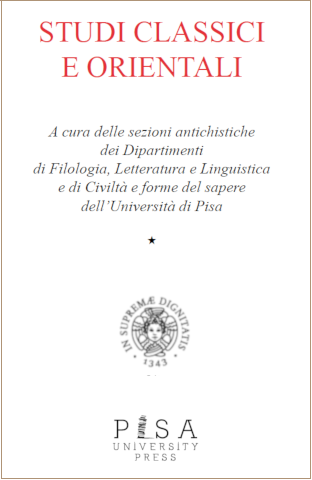Mirum e fides. Meraviglia vs. credibilità nelle opere ovidiane dell’esilio
Abstract
Mirum and fides. Wonder vs. credibility in Ovid’s exilic works.It is well known by critics that in Ovid’s Metamorphoses a crucial aspectof the narrative is represented by the narrator’s tendency to mark the miraculous,astonishing, and thus incredible side of the stories he tells: theinfinite number of tales narrated through the poem sets the reader in frontof a series of miracula, whose unbelievable character is constantly emphasized.It is worth noticing that in his elegies from exile Ovid does notseem to lose his interest in the mirum: in the Tristia and the Epistulae exPonto, the descriptions of Tomis and its surroundings (the remote Ponticlocality where the poet was banished) concentrate upon those elementswhich cannot but sound incredible to the Roman audience. The exile’spurpose, in fact, is that of making his readers sensible to his bad condition,so that they can decide to bring him their help; this practical aim,which lies at the heart of Ovid’s exilic output as a whole, finds expressionin a hyperbolical and ‘spectacular’ representation of the Pontic reality: inTomis the exiled poet faces risks rare to find elsewhere and experiencesphenomena that seem quite unnatural – and difficult to believe. Throughsuch a representation the poet wants to show his friends and readers (notleast, the emperor) that the place where he now lives is the ‘worst of allpossible worlds’, a place where adynata become real and the standardlaws of nature are not followed; but such an account of the Pontic realitycan easily lack credibility, thus invalidating the poet’s persuasive efforts –something Ovid is well aware of. It is therefore interesting to see how thepoet faces the problem of his own truthfulness (fides), an issue that is takeninto consideration up to the last of Ovid’s collections.
edoardo.galfre@sns.it
Fascicolo
Sezione
Articoli


